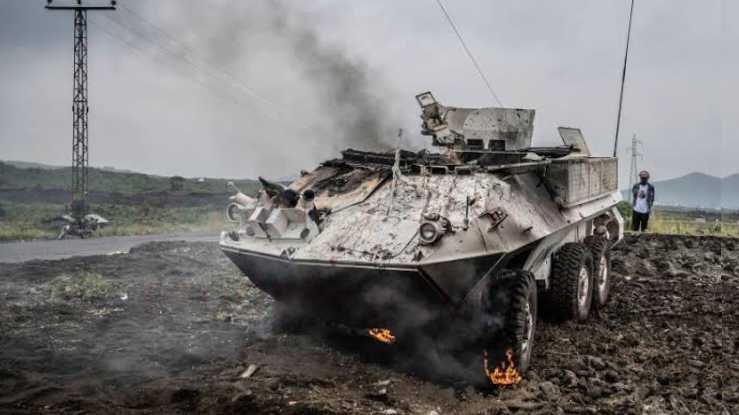Congo Seeks Chad’s Military Aid as M23 Rebels Advance – Regional Security at Stake
The Democratic Republic of Congo (DRC) has formally requested military assistance from Chad. This development comes as the M23 rebels, allegedly supported by Rwanda, continue to advance, capturing significant territories and intensifying regional instability.
On February 18, 2025, Congo’s Minister of Regional Integration met with Chadian President Mahamat Idriss Deby Itno in N’Djamena, delivering a personal message from President Felix Tshisekedi. While the specifics of their discussion remain confidential, sources within both governments have confirmed that the DRC is seeking both military and diplomatic support from Chad. A Chadian official, speaking on condition of anonymity, stated that while the request is under consideration, no definitive decision has been reached. Similarly, a source from the Congolese presidency corroborated the appeal for assistance but refrained from providing further details.
The M23 rebellion, rooted in the aftermath of the Second Congo War, has seen a resurgence since early 2024. The group has seized key areas in North and South Kivu provinces, including the strategic cities of Goma and Bukavu. Their rapid territorial gains have displaced hundreds of thousands, exacerbating the humanitarian crisis in the region. The DRC government has consistently accused Rwanda of providing support to the M23 rebels, allegations that Kigali has repeatedly denied.
Chad’s potential involvement in the DRC’s internal conflict is not without precedent. Historically, Chad has participated in regional peacekeeping and military interventions, notably during the Second Congo War in the late 1990s. However, such interventions have been met with mixed outcomes, and the prospect of deploying troops to the DRC once again raises questions about regional security dynamics and the effectiveness of external military support in resolving internal conflicts.
The international community continues to monitor the situation closely. The United Nations has expressed concern over the escalating violence and its impact on civilian populations. Efforts to broker peace have thus far been unsuccessful, and the DRC’s outreach to Chad signifies a strategic shift, seeking regional alliances to bolster its military capabilities against the insurgents.
As the situation develops, the potential deployment of Chadian forces to the DRC could alter the balance of power in the region. Both nations share a vested interest in stabilizing Central Africa, and their collaboration may serve as a catalyst for broader regional efforts to address the multifaceted challenges posed by rebel movements and their transnational implications.
In conclusion, the DRC’s request for Chadian military support underscores the severity of the threat posed by the M23 insurgency. It highlights the complexities of regional politics, historical alliances, and the ongoing struggle for stability in a region long plagued by conflict. The outcome of this request may have far-reaching consequences for the security and political landscape of Central Africa.

